Related Research Articles
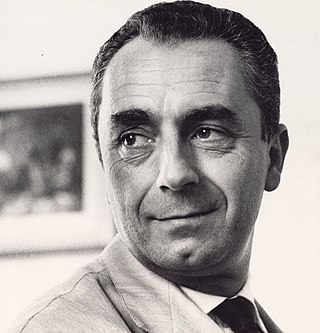
Michelangelo Antonioni was an Italian director and filmmaker. He is best known for his "trilogy on modernity and its discontents"—L'Avventura (1960), La Notte (1961), and L'Eclisse (1962)—as well as the English-language film Blowup (1966). His films have been described as "enigmatic and intricate mood pieces" that feature elusive plots, striking visual composition, and a preoccupation with modern landscapes. His work substantially influenced subsequent art cinema. Antonioni received numerous awards and nominations throughout his career, being the only director to have won the Palme d'Or, the Golden Lion, the Golden Bear and the Golden Leopard.

Roberto Gastone Zeffiro Rossellini was an Italian film director, screenwriter and producer. He was one of the most prominent directors of the Italian neorealist cinema, contributing to the movement with films such as Rome, Open City (1945), Paisan (1946), and Germany, Year Zero (1948). He is also known for his films starring Ingrid Bergman, Stromboli (1950), Europe '51 (1952), Journey to Italy (1954), Fear (1954), and Joan of Arc at the Stake (1954).
An anthology film is a single film consisting of several shorter films, each complete in itself and distinguished from the other, though frequently tied together by a single theme, premise, or author. Sometimes each one is directed by a different director or written by a different author, or may even have been made at different times or in different countries. Anthology films are distinguished from "revue films" such as Paramount on Parade (1930)—which were common in Hollywood in the early decades of sound film, composite films, and compilation films.
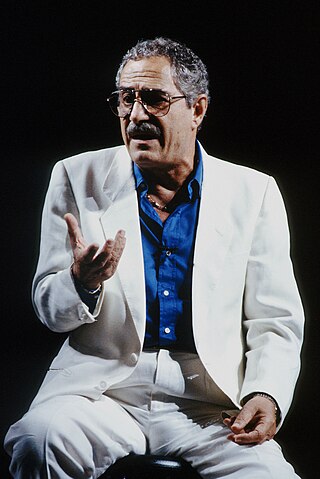
Saturnino "Nino" Manfredi was an Italian actor, voice actor, director, screenwriter, playwright, comedian, singer, author, radio personality and television presenter.

Valentina Cortese, sometimes credited as Valentina Cortesa, was an Italian film and theatre actress. In her 50 years spanning career, she appeared in films of Italian and international directors like Michelangelo Antonioni, Federico Fellini, Franco Zeffirelli, François Truffaut, Terry Gilliam, Joseph L. Mankiewicz and others.

Maiori is a town and comune on the Amalfi coast in the province of Salerno. It has been a popular tourist resort since Roman times, with the longest unbroken stretch of beach on the Amalfi coastline.
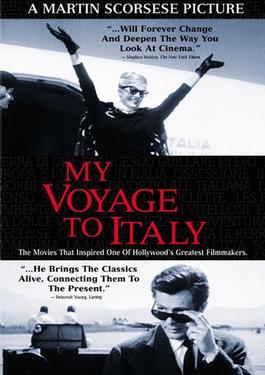
My Voyage to Italy is a personal documentary by acclaimed Italian-American director Martin Scorsese. The film is a voyage through Italian cinema history, marking influential films for Scorsese and particularly covering the Italian neorealism period.

Bernhard Wicki was an Austrian-Swiss actor, film director and screenwriter. He was a key figure in the revitalization of post-war German-language cinema, particularly in West Germany, and also directed several Hollywood films.

Edwige Feuillère was a French stage and film actress.
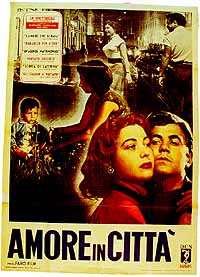
Love in the City is a 1953 Italian anthology film composed of six segments, each with its own director. The segments and filmmakers are: Paid Love, Attempted Suicide, Paradise for Three Hours, Marriage Agency, Story of Caterina, and Italians Stare.
Joseph Burstyn, Inc. v. Wilson, 343 U.S. 495 (1952), also referred to as the Miracle Decision, was a landmark decision by the United States Supreme Court that largely marked the decline of motion picture censorship in the United States. It determined that provisions of the New York Education Law that had allowed a censor to forbid the commercial showing of a motion picture film that the censor deemed "sacrilegious" were a "restraint on freedom of speech" and thereby a violation of the First Amendment.
L'amore dei tre re is an opera in three acts by Italo Montemezzi. Its Italian-language libretto was written by playwright Sem Benelli who based it on his play of the same title.
Norman Krasna was an American screenwriter, playwright, producer, and film director who penned screwball comedies centered on a case of mistaken identity. Krasna directed three films during a forty-year career in Hollywood. He garnered four Academy Award screenwriting nominations, winning once for 1943's Princess O'Rourke, which he also directed.

Carlo Ninchi was an Italian film actor. He appeared in more than 120 films between 1931 and 1963.
Joseph Burstyn was a Polish-American film distributor who specialized in the commercial release of foreign-language and American independent film productions.
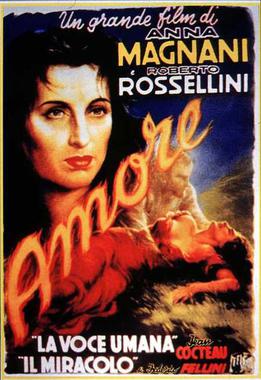
L'Amore ('Love') is a 1948 Italian drama anthology film directed by Roberto Rossellini starring Anna Magnani and Federico Fellini. It consists of two parts, The Human Voice, based on Jean Cocteau's 1929 play of the same title, and The Miracle, based on Ramón del Valle-Inclán's 1904 novel Flor de santidad. The second part was banned in the United States until it was cleared in 1952 by the Supreme Court's decision upholding the right to freedom of speech.

Mario Pisu was an Italian actor and voice actor.

Love at Twenty is a 1962 French-produced omnibus project of Pierre Roustang, consisting of five segments, each with a different director from a separate country. It was entered into the 12th Berlin International Film Festival.

Film censorship in the United States was a frequent feature of the industry almost from the beginning of the U.S. motion picture industry until the end of strong self-regulation in 1966. Court rulings in the 1950s and 1960s severely constrained government censorship, though statewide regulation lasted until at least the 1980s.

"L'amore esiste" is a song recorded by Italian singer Francesca Michielin, written by Fortunato Zampaglione and Michele Canova. The latter also produced the track, which was released on 6 March 2015 as the lead single from Michielin's second studio album, di20. Certified double platinum by the Federation of the Italian Music Industry, it was Michielin's second solo top ten single in Italy. The song also received the Lunezia Pop Award in 2015.
References
- 1 2 Crowther, Bosley (December 13, 1950). "The Ways of Love (1950) THE SCREEN IN REVIEW; 'Ways of Love,' in Which Work of 3 Noted Foreign Directors Is Intertwined, at Paris". The New York Times .
- ↑ Hal Erickson (2016). "L'Amore". Movies & TV Dept. The New York Times . Archived from the original on 2016-03-06..